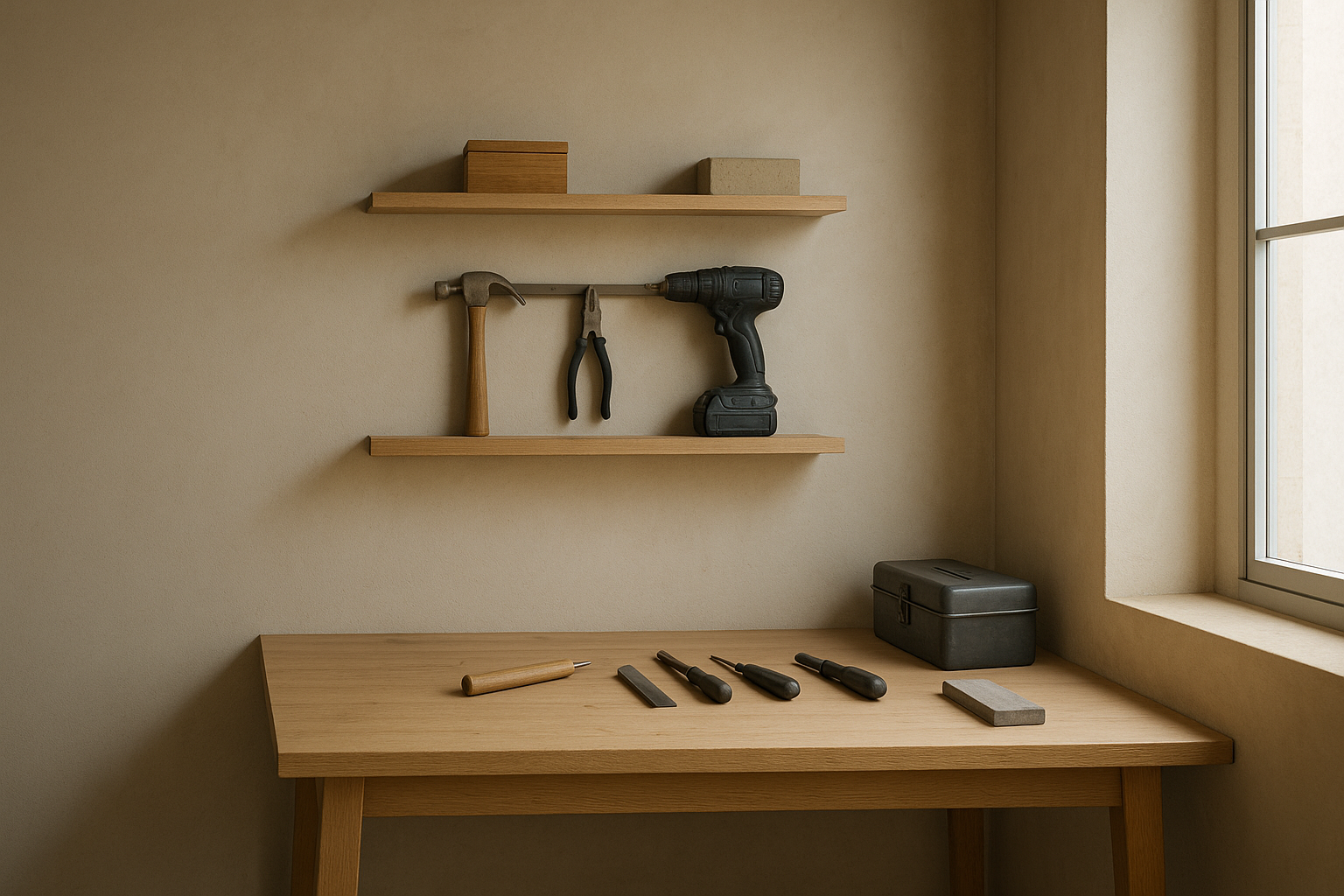In workshops across the world, a quiet revolution is taking place. Makers are downsizing — not in ambition, but in space, tools, and clutter. The trend toward minimalist workshops is redefining creativity, proving that innovation doesn’t always require complexity. Instead of walls lined with tools, today’s most efficient creators are building compact, organized environments where every item serves a purpose. This shift is less about restriction and more about rediscovering the freedom to focus.
The minimalist workshop reflects a new philosophy of craftsmanship — one that values clarity, adaptability, and sustainability. As tools become smarter and multifunctional, the need for large, crowded setups has diminished. A single modular drill system can replace five traditional devices. Dust collection, lighting, and power management can all be handled by automated systems. This approach aligns closely with the principles explored in How to Build a Workshop That Thinks for You (Without Losing Control), where technology supports simplicity rather than complicates it. The modern workspace is becoming quieter, cleaner, and far more intentional.
Minimalism also enhances creativity by reducing decision fatigue. When every tool and material is visible, accessible, and easy to maintain, the maker’s focus shifts from managing the environment to mastering the craft. This mirrors the mindset found in Five Tool Maintenance Habits Every Maker Should Know in 2025 — precision thrives in organized environments. The minimalist approach doesn’t limit expression; it amplifies it. When distractions are removed, makers find themselves experimenting more, finishing projects faster, and enjoying the process with renewed clarity.
Environmental awareness plays a key role in this transformation. Owning fewer tools means consuming fewer resources and producing less waste — a direct contribution to sustainability. The movement toward responsible making, discussed in Sustainable Power: How Tool Brands Are Going Carbon Neutral, emphasizes longevity and thoughtful consumption over constant upgrading. Minimalist makers often choose durable, modular, or repairable tools that serve multiple functions rather than filling shelves with redundancy. In essence, the minimalist workshop is not just a workspace — it’s a statement about conscious creation.
Interestingly, the minimalist trend has also made workshops more accessible. As housing spaces shrink and urban lifestyles evolve, compact creative zones are becoming the norm. Small studios, converted garages, and mobile workstations allow DIYers to work anywhere without sacrificing capability. With the help of compact battery systems, foldable benches, and smart storage, even a single corner can become a productive studio. This democratization of making aligns with the digital evolution described in From Garage to Smart Studio: The Modern DIYer’s Transformation — creativity, once confined by resources, now thrives in efficiency.
Ultimately, the minimalist workshop is about doing more with less — not out of limitation, but out of intention. Every tool earns its place, every space has meaning, and every action becomes more deliberate. It’s a philosophy that mirrors the evolution of modern craftsmanship itself: thoughtful, adaptive, and human. In 2025, where abundance often leads to distraction, the minimalist maker proves that simplicity isn’t a constraint — it’s the purest form of mastery.
